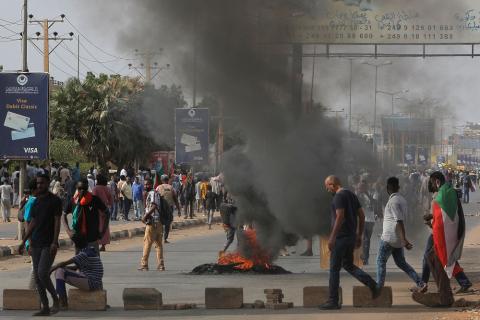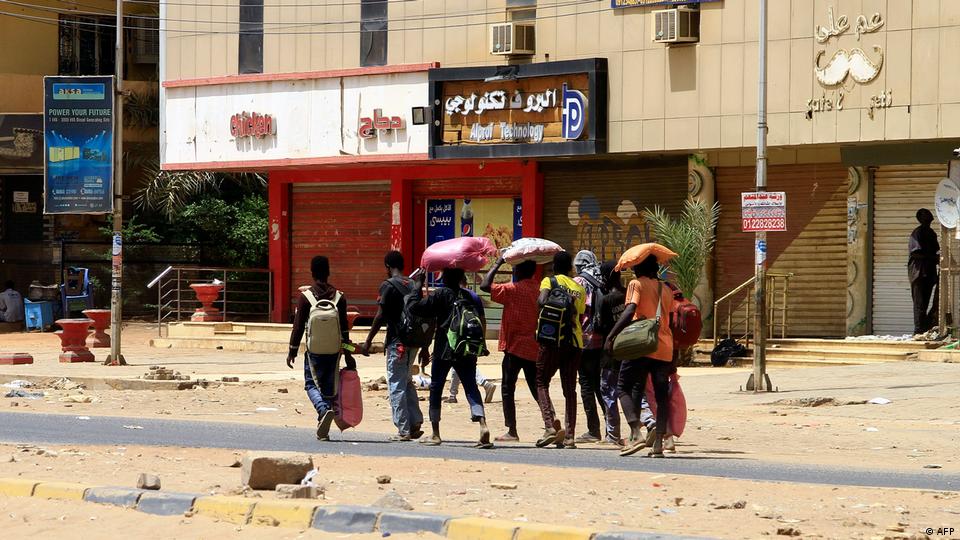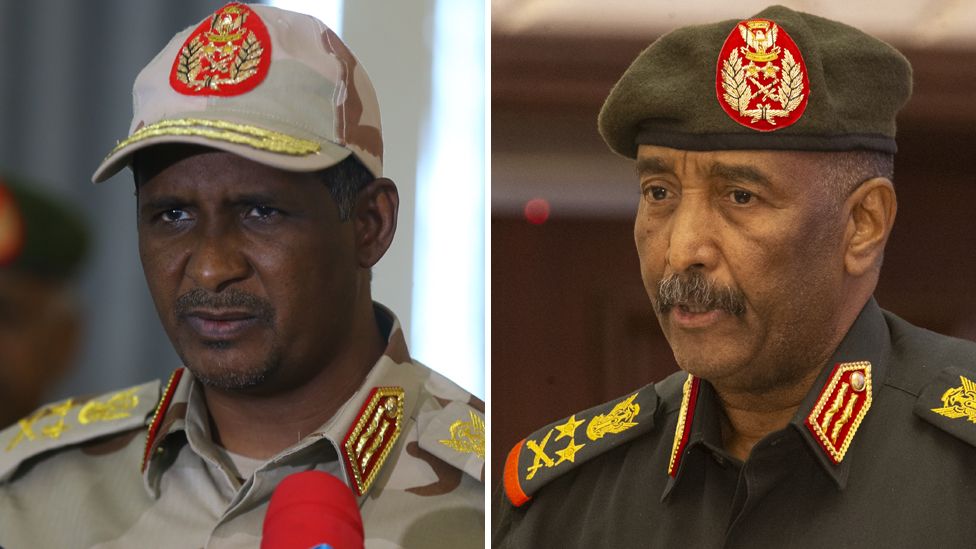The Sudanese army launched air attacks on paramilitaries in the capital Khartoum on Thursday, while deadly violence erupted in Darfur, despite a US-brokered ceasefire.
Late Wednesday, the army announced that it had agreed to hold negotiations in Juba, the capital of neighbouring South Sudan, to prolong the three-day cease-fire that ends on Friday at the request of IGAD.
Since April 15, a battle has erupted between Sudan's regular army, led by General Abdel Fattah al-Burhan, and the paramilitary Rapid Support Forces (RSF), led by his deputy-turned-opponent, Mohamed Hamdan Daglo. All of them have failed.

Despite a US-brokered ceasefire that went into force on Tuesday, the violence has continued, with jets patrolling the sky over the capital's northern suburbs and combatants on the ground exchanging artillery and heavy machine gun fire, according to witnesses.
Did you read this?
According to the army, Burhan agreed on Wednesday to the IGAD suggestion for talks on prolonging the truce for another 72 hours.
The RSF's reaction to the idea is still unknown.
According to health ministry data, at least 512 people have been killed, and 4,193 have been injured in the violence, though the confirmed death toll is likely to be significantly higher.
Beyond the capital city, the conflict has erupted in the regions beyond the capital, particularly in Darfur's war-torn western region.
Clashes between the army and the RSF erupted for the second day continuously in Geneina, the capital of West Darfur, witnesses said, adding that civilians were seen fleeing to the neighbouring border with Chad.
On Wednesday, the United Nations humanitarian agency reported deaths, looting, and arson in Geneina.

The intensive combat has stranded many civilians in their homes, facing severe food, water, and energy shortages. Communications have been intermittently disconnected.
According to the UN, up to 270,000 people may move into Sudan's impoverished neighbours, South Sudan and Chad.
Other Sudanese have fled to Egypt to the north and Ethiopia to the east, but both require long and potentially dangerous overland trips.









